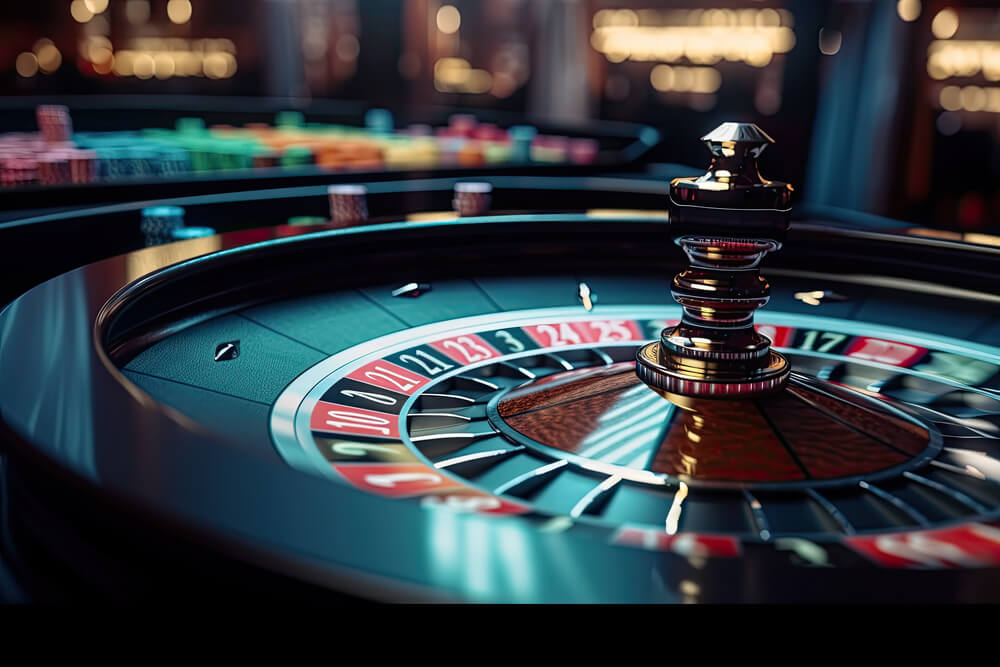
In the dynamic world of gaming, gambling house options have long captured the attention of gamblers around the globe. These options, ranging from classic table options like poker to the spinning reels of slot machines, offer an fascinating blend of randomness and strategy. While luck undeniably plays a crucial role in determining outcomes, the importance of knowledge in many gambling options cannot be overlooked. Understanding how skill shapes the experience can improve not only a participant’s experience but also their likelihood of achievement.
As we explore further the dynamics of casino activities, it becomes clear that some require a strong grounding of knowledge and strategy. Activities like Texas Hold’em require more than just fortune; they require strategic thinking, emotional insight, and calculated decision-making. In contrast, other games, such as the roulette wheel and slots, are primarily based on luck, allowing gamblers to rely entirely on random chance. This distinction raises thought-provoking questions about what really drives achievement in the realm of casinos and how a gambler’s competences can tilt the balance in their favor.
Grasping Expertise versus Chance within Casino Games
Within the world of casino games, the discussion between skill and luck is a enduring one. Many games are often categorized into two groups: those that depend predominantly on randomness, such as slot machines and roulette, and those where skill plays a significant role, like the game of poker and blackjack. The difference is crucial because it affects not only gameplay strategies but also the approach players take when engaging with these games. While luck can play a critical role in the short term, skilled players can boost their odds of winning over the extended period in skill-based games.
Skill-based games, especially poker, require players to understand odds, human behavior, and game strategies. A seasoned poker player can analyze rivals, make calculated bets, and understand when to fold, all of which can lead to more favorable outcomes. On the other hand, in games that are purely chance-driven, no amount of skill can alter the odds. This implies that while a player may win big in one session, their victory may frequently be at the mercy to the whims of random outcomes rather than any tactical expertise.
Ultimately, both skill and luck exist together in the world of casino games, forming a vibrant environment for players. While games of chance can provide excitement and instant gratification, mastery and strategy in skill-based games offer a richer level of engagement for those willing to dedicate time in honing their craft. This interplay between skill and luck defines the journeys of players and shapes their connection with the games they choose to play.
The Impact of Expertise on Casino Results
In the world of gambling games, skill plays a crucial role in determining the results, especially in games where strategy and choices are essential. For example, in poker, players must analyze opponents, calculate odds, and make calculated bets to maximize their odds of succeeding. Unlike games that rely purely on chance, such as slots or the roulette wheel, this game demands an understanding of both the rules and the psychology of other players, making skill a vital component of victory.
Additional skill-based activities, like the game of blackjack, also emphasize the significance of player skill. Understanding of basic tactics, card counting, and when to hit or stand can significantly influence the casino advantage. A skilled 21 player can reduce this edge and improve their chances of winning over time. This contrasts with games that do not permit for such strategic play, demonstrating how the level of expertise directly affects the possibility for favorable outcomes.
Additionally, even within games deemed primarily chance-driven, like craps, the choices made by players can impact their overall success. Choosing the right bets, comprehending the likelihoods of different outcomes, and controlling one’s funds are essential aspects that can enhance a participant’s experience and results. Thus, while luck remains a factor in gambling, skill can significantly influence how effectively players navigate these settings, leading to more favorable outcomes.
Tactics for Expert Play in Gaming Establishments
To succeed in casino games, players must develop a solid grasp of the rules and probabilities involved in every game. This foundational knowledge enables individuals to make informed decisions, especially in skill-based games like Texas Hold’em and 21. Becoming acquainted oneself with game strategies, such as card counting in blackjack or recognizing wagering trends in Texas Hold’em, can significantly enhance a player’s odds of winning. Practicing these tactics through practice games or lower-stakes games allows players to improve their skills without risking substantial amounts of cash at stake.
Another key approach is budgeting. Players should create a spending limit before going into the casino and follow it rigorously. This involves determining how much they are prepared to lose and setting limits on how much they will bet in every gaming session. By keeping a disciplined approach to gambling, players can maintain their play and reduce the risk of major losses. Additionally, taking breaks can help maintain a clear mind and prevent rash decisions that often lead to unfavorable outcomes.
Ultimately, managing emotions is vital in the intense environment of a casino. Players must be adept at controlling their emotions, particularly during times of winning or losing runs. non Gamstop casinos Staying focused and not allowing emotions dictate gameplay can lead to more sound decisions. Methods such as taking deep breaths or stepping away from the gaming table during intense moments can help maintain composure. By cultivating a balanced state of mind, players can approach gambling games with confidence and skill, thereby enhancing their overall experience and results.
